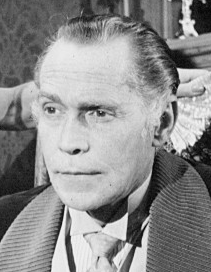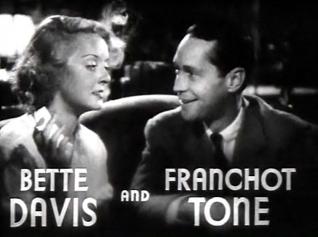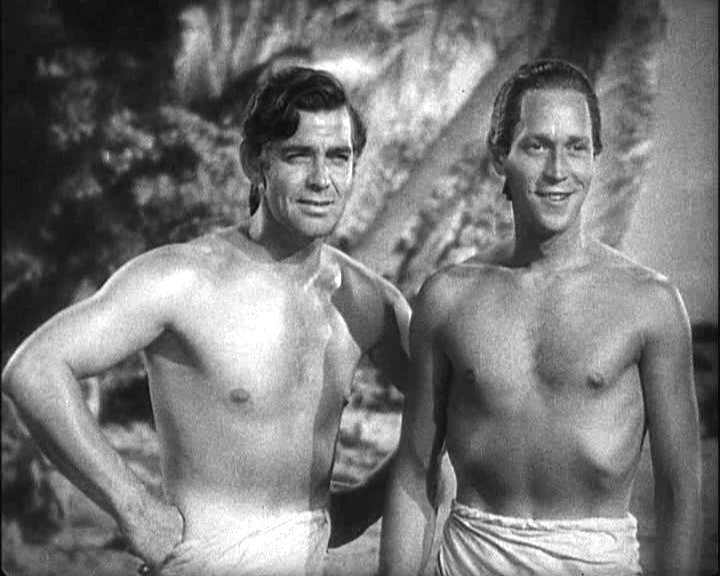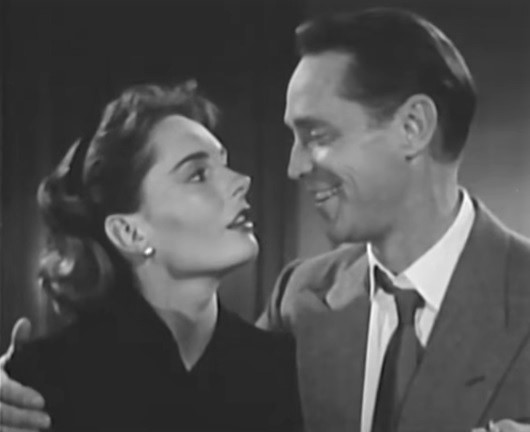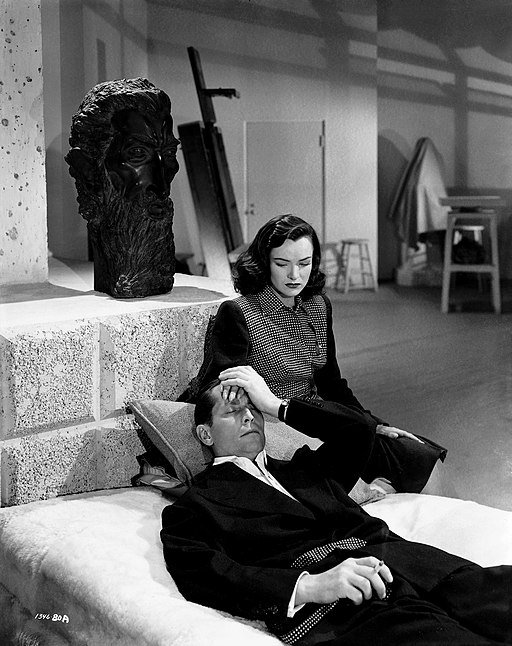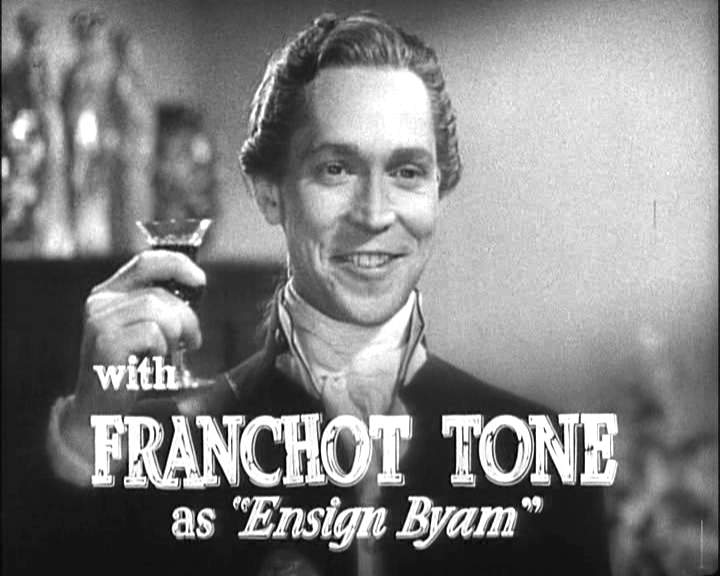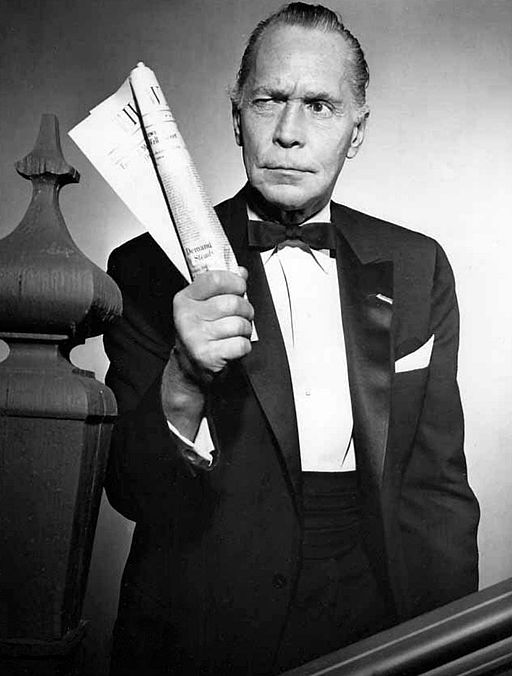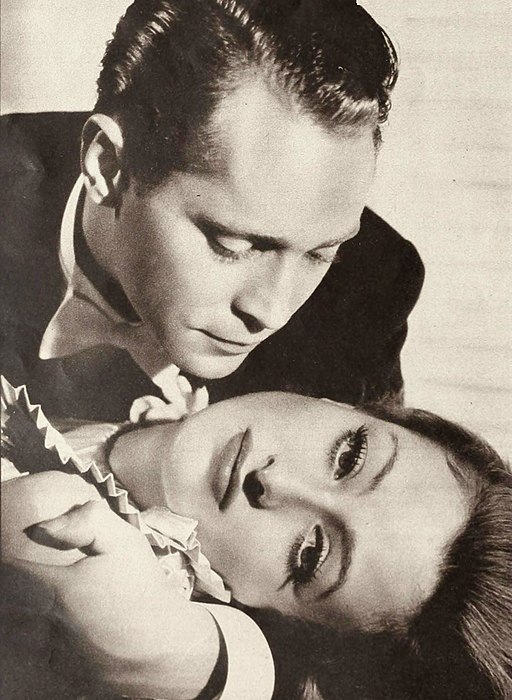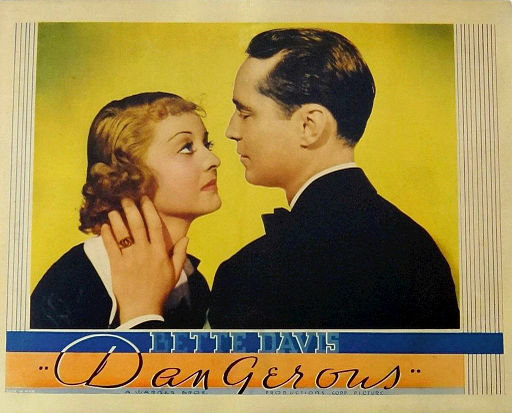Franchot Tone
back| Full Name | Stanislaus Pascal Franchot Tone |
| Stage Name | Franchot Tone |
| Born | February 27, 1905 |
| Birthplace | Niagara Falls, New York, USA |
| Died | September 18, 1968 |
| Buried | Kensico Cemetery, Valhalla, New York |
| Married to | Joan Crawford (1935-1939) - Jean Wallace (1941-1948) - Barbara Payton (1952) - Dolores Dorn (1956-1959) |
| Children | None |
| Notable films | Mutiny on the Bounty (1935) - Dangerous (1935) - Phantom Lady (1944) - Advise and Consent (1962) |
Franchot Tone
The Quintessential Gentleman of Golden Age Hollywood
Franchot Tone was an accomplished American actor whose career spanned both stage and screen. His notable films include "Mutiny on the Bounty" (1935), for which he received an Academy Award nomination, and "Dangerous" (1935) alongside Bette Davis.
Married notably to Joan Crawford, Tone was as well known for his high-profile personal life as for his versatile performances. Despite a decline in prominence later in his career, he continued acting into the 1960s.
Related
Franchot Tone (1905 – 1968)
Biography and Career Overview
Franchot Tone was an influential American actor, recognized for his distinctive performances and gentlemanly demeanor, whose career spanned over three decades in Hollywood. Born Stanislaus Pascal Franchot Tone on February 27, 1905, in Niagara Falls, New York, he was the son of Dr. Frank Jerome Tone, a prominent lawyer, and Gertrude Van Vrancken Tone. Raised in a wealthy and cultured environment, Tone was afforded an excellent education, attending The Hill School in Pennsylvania followed by Cornell University. At Cornell, he became deeply involved in the drama club, cementing his passion for acting.
After college, despite the potential for a professional career in the family business, Tone chose to pursue acting. He moved to New York City and began his acting career on stage, refining his craft with the newly formed Group Theatre. This association was crucial; it placed him alongside future stars like Lee Strasberg and Harold Clurman, and ingrained in him the values of the emerging method acting technique.
Tone's Broadway success led to a contract with MGM in the early 1930s, marking the beginning of his film career. He quickly established himself as a reliable leading man. His notable early films include "Today We Live" (1933) and "Moulin Rouge" (1934). However, it was his role in "Mutiny on the Bounty" (1935) that earned him an Academy Award nomination and solidified his position in Hollywood.
His personal life, particularly his marriages, often garnered as much attention as his professional endeavors. Tone's most publicized marriage was to actress Joan Crawford from 1935 to 1939. This union thrust him into the Hollywood spotlight, although the marriage ended in divorce due to his and Crawford's rising careers and personal differences. He later married actress Jean Wallace in 1941, a union that also ended in divorce in 1948. His subsequent marriages—to Barbara Payton in 1952 and Dolores Dorn in 1956—were similarly short-lived.
Beyond acting, Tone had a passion for politics and literature, often hosting salons and gatherings at his home where intellectual discussions took place. He was known for his sophisticated taste and was an avid art collector.
Tone's career extended into the 1960s with roles in both film and television, although he never regained the prominence of his early Hollywood years. His health began to decline in the mid-1960s, culminating in his death on September 18, 1968, from lung cancer. He was 63 years old. Franchot Tone was buried in Kensico Cemetery in Valhalla, New York, leaving behind a legacy of cinematic contributions and a reputation as a quintessential gentleman of the golden age of Hollywood. His work, characterized by an effortless charm and depth, remains influential in the acting community.
Franchot Tone's Scandal:
His Marriage with Joan Crawford:
Franchot Tone and Joan Crawford's marriage was one of the more celebrated relationships in Hollywood during the mid-1930s, characterized by both passionate romance and high-profile drama. They met while co-starring in the film "Today We Live" in 1933, and their attraction was instant. Crawford was deeply smitten with Tone, who was not only handsome but also cultured and sophisticated, qualities she greatly admired. They married in 1935, amid considerable media attention.
Joan Crawford, at that time, was already a major star at MGM, while Tone was carving out his own niche as a leading man. Their marriage was marked by shared interests in the arts and a glamorous social life, making them one of the era's quintessential Hollywood couples. However, the relationship also had its challenges. Crawford's intense dedication to her career and Tone's discomfort with the Hollywood scene and his lesser star status relative to Crawford added strains to their union.
Despite their initial deep affection, the marriage lasted only four years, ending in divorce in 1939. The relationship reportedly remained amicable post-divorce, with both stars speaking well of each other in public. Crawford famously said in an interview that Tone was the love of her life, and she regretted some of her decisions during their time together.
After their separation, both continued to have successful careers and other marriages, but their time together remains a notable chapter in the annals of classic Hollywood romance. Tone's marriage to Crawford highlights both the allure and the pressures of Hollywood relationships, where professional and personal lives are deeply intertwined and scrutinized by the public.
Notable Movies Starring Franchot Tone:
1933
"Today We Live": Set during World War I, Tone plays Ronnie, a British aristocrat involved in a complicated love triangle with characters played by Joan Crawford and Gary Cooper.
1934
- "The World Moves On": A family saga covering 100 years of war and peace, Tone stars as Richard Girard, part of a family navigating the vicissitudes of history.
- "Moulin Rouge": Tone plays Douglas Hall, an aristocrat caught in a romantic entanglement in Paris during the late 19th century.
- "Sadie McKee": As Michael Alderson, Tone is part of a love triangle involving a working-class woman (Joan Crawford) navigating her relationships.
1935
- "The Lives of a Bengal Lancer": A British adventure film where Tone portrays Lieutenant Forsythe, part of a trio of soldiers fighting on the Indian frontier.
- "Mutiny on the Bounty": Tone earned an Academy Award nomination for his role as Midshipman Roger Byam, involved in the famous mutiny aboard HMS Bounty.
- "Dangerous": Tone plays Don Bellows, a wealthy architect who falls in love with a troubled actress, played by Bette Davis.
1936
"The Gorgeous Hussy": Tone is cast as John Randolph, a senator involved with Peggy Eaton, whose relationships cause a political scandal.
1937
"Quality Street": In this historical drama, Tone portrays Dr. Valentine Brown, the love interest in a story set during the Napoleonic Wars.
1938
"Three Comrades": Tone plays Erich Lohkamp, one of three German soldiers trying to adjust to civilian life post-World War I.
1940
"Trail of the Vigilantes": A Western where Tone plays Tim Mason, a newspaperman who goes undercover to root out corruption.
1941
"Nice Girl?": Tone's character, Richard Calvert, becomes the object of affection for a young woman determined to grow up fast.
1943
"Five Graves to Cairo": As Corporal John Bramble, Tone is a British soldier who uncovers Axis plans in North Africa during WWII.
1944
"Phantom Lady": Tone plays Jack Marlow, tangled in a mystery involving his secretary and the murder of his wife.
1951
"Here Comes the Groom": A romantic comedy where Tone appears in a supporting role as Wilbur Stanley, providing comic relief in a tale of journalistic antics.
1962
"Advise and Consent": Tone's significant later role as the President of the Senate in a film exploring the intricacies of political power in Washington, D.C.
Analysis of the Acting Style of Franchot Tone:
Franchot Tone was known for his refined and urbane demeanor, which became a hallmark of his acting style throughout his career. Coming from a background in theatre and a founding member of the prestigious Group Theatre, Tone was steeped in the practices of method acting, although his style retained a polished sophistication that set him apart from many of his contemporaries who also emerged from the same training ground.
Tone's performances often exuded a natural charm and an effortless grace, qualities that made him particularly effective in roles that required a blend of suavity and vulnerability. His approach was characterized by a subtle underplaying, which brought a depth of authenticity to his characters without resorting to theatricality. This restraint made his characters appear more genuine and relatable, allowing audiences to see the complexities beneath their composed surfaces.
In romantic dramas, such as in his roles opposite Joan Crawford in "Sadie McKee" and Bette Davis in "Dangerous," Tone skillfully balanced the strong, dependable leading man persona with a palpable sense of empathy and warmth. His ability to portray complex emotional states with minimal apparent effort was a testament to his deep understanding of character and emotion, traits likely honed from his early theater training.
In adventure and action genres, such as "Mutiny on the Bounty" and "The Lives of a Bengal Lancer," Tone adeptly combined his gentlemanly charm with a more rugged physicality, showing a versatility that could transcend the boundaries of genre. His performance in "Mutiny on the Bounty," where he played Midshipman Roger Byam, showcased his capacity to convey moral conviction and personal conflict, earning him an Academy Award nomination.
Moreover, Tone had a unique ability to adapt to the evolving styles of acting across the decades, transitioning from the theatrical expressions of the 1930s to more nuanced and understated performances in later years, as seen in "Advise and Consent." Despite the changing dynamics of film acting, Tone maintained a consistent presence, always bringing a depth of humanity to his roles.
Overall, Franchot Tone's acting style was a blend of classic Hollywood charisma and method-acting depth. He was a master of subtlety and sophistication, qualities that allowed him to remain a memorable and influential figure in the world of cinema. His legacy continues to be appreciated by those who value an acting approach that combines emotional depth with an unforced, dignified presence on screen.
Awards and Recognition:
Academy Awards
1936: Tone received an Academy Award nomination for Best Actor for his role in "Mutiny on the Bounty". This film was highly acclaimed and featured strong performances by a cast including Charles Laughton and Clark Gable. In the film, Tone played Midshipman Roger Byam, a character based on a real-life figure from the historic mutiny on the HMS Bounty.
Other Recognitions
While Tone did not accumulate a vast array of other awards, his contributions to film were widely recognized within the industry and by his peers. He was respected for his versatility and the sophistication he brought to his roles, which helped pave the way for a lasting legacy in Hollywood.
Memorable Film Lines:
"Mutiny on the Bounty" (1935) - As Midshipman Roger Byam, Tone delivers a line that reflects his character's noble and lawful disposition:
- "I have done my duty by both my men and my conscience."
"Dangerous" (1935) - Playing the character of Don Bellows, Tone's dialogue often encapsulated the tension and drama of his romantic entanglements:
- "You’re the most completely honest woman I’ve ever met. You’re wrong. But you’re wonderful."
"Phantom Lady" (1944) - As Jack Marlow, Tone's character is involved in a deep and suspenseful plot, providing dialogue that adds to the film's moody and noir atmosphere:
- "You're afraid of me. I like that in a woman."
"Advise and Consent" (1962) - In his role as the President of the Senate, Tone’s character provided insightful and impactful lines about the workings of government:
- "This is a tragic thing, but all our lives are made up of such tragedies. We can only hope it will turn out for the best."
What others said about Franchot Tone:
- Joan Crawford, his second wife, spoke fondly of Tone despite their eventual divorce, saying: "Franchot was a very gentle soul, and we were very much in love. He was a lovely, lovely man. And we decided to marry. I think Franchot and I had a lot of mutual respect for each other, and mutual respect is a great basis for marriage" .
- Bette Davis, his co-star in "Dangerous," had high praise for Tone's acting abilities, stating: "I couldn't wait to get to work with Franchot Tone in 'Dangerous'. He was a charming, lovely man. It was heaven working with him".
- Vincent Price, who co-starred with Tone in several films, described him as "such a sweet, sweet man, very talented, very charming" .
- Director Frank Lloyd, who worked with Tone on "Mutiny on the Bounty," praised his professionalism and dedication to his craft, stating: "Franchot was a gentleman and a wonderful actor. He put his heart and soul into every performance".
- Film critic Leonard Maltin described Tone as "one of the most underrated actors of his generation, capable of conveying a quiet intelligence and emotional depth in his roles" .
Full List of Movies with Franchot Tone:
- The Wiser Sex (1932)
- Today We Live (1933)
- Gabriel Over the White House (1933)
- Midnight Mary (1933)
- Stage Mother (1933)
- Bombshell (1933)
- Dancing Lady (1933)
- Moulin Rouge (1934)
- The World Moves On (1934)
- Sadie McKee (1934)
- Gentlemen Are Born (1934)
- The Lives of a Bengal Lancer (1935)
- Mutiny on the Bounty (1935)
- Dangerous (1935)
- No More Ladies (1935)
- The Gorgeous Hussy (1936)
- Suzy (1936)
- Exclusive Story (1936)
- Love on the Run (1936)
- The Bride Wore Red (1937)
- Quality Street (1937)
- They Gave Him a Gun (1937)
- Between Two Women (1937)
- Three Comrades (1938)
- Fast and Loose (1939)
- Man-Proof (1938)
- Trail of the Vigilantes (1940)
- Nice Girl? (1941)
- She Knew All the Answers (1941)
- This Woman Is Mine (1941)
- Five Graves to Cairo (1943)
- Pilot #5 (1943)
- True to Life (1943)
- His Butler's Sister (1943)
- Phantom Lady (1944)
- Dark Waters (1944)
- The Hour Before the Dawn (1944)
- Because of Him (1946)
- Her Highness and the Bellboy (1945)
- Without Honor (1949)
- Every Girl Should Be Married (1948)
- Here Comes the Groom (1951)
- I Love Melvin (1953)
- Jigsaw (1949)
- The Man on the Eiffel Tower (1949)
- Uncle Vanya (1957)
- Advise and Consent (1962)
- Laughter in the Dark (1969) - Released posthumously

